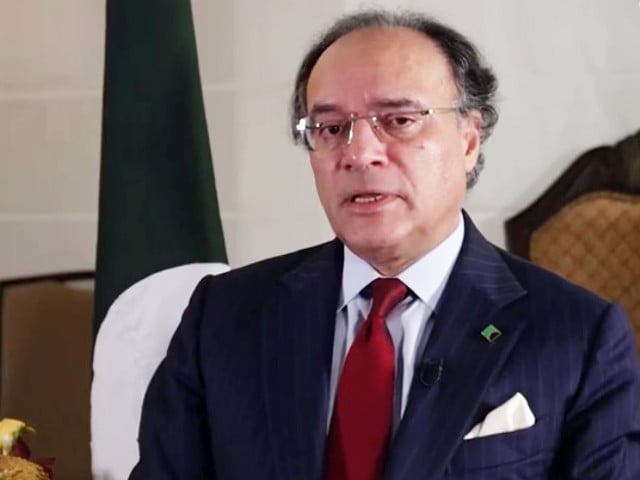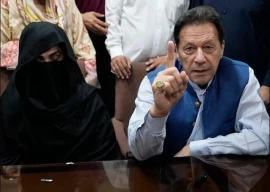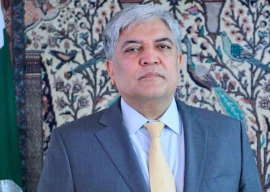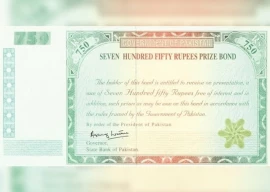
Finance Minister Muhammad Aurangzeb on Saturday announced a crackdown on price control committees and middlemen, deploring that despite a decline in global prices of pulses, grains, poultry and petroleum products, local market prices remain unaffected.
He noted that despite a reduction in inflation, the public was not yet benefiting.
Speaking to reporters at the Overseas Investors Chamber of Commerce and Industry (OICCI) in Karachi, Aurangzeb said that an important meeting on inflation would be held next month at the ECC.
"The government will now make tough decisions regarding price reductions," he announced.
The finance minister clarified that no sales tax was being imposed on petroleum products.
He further pointed out that protests and sit-ins in Islamabad cost the country a staggering Rs190 billion daily. "Government institutions are also incurring a loss of Rs2.2 billion every day, which amounts to a total loss of Rs6,000 billion over the past 10 years," he shared.
In the last two months, overseas investors had sent 2.2 billion dollars in profits abroad, he added.
Regarding the currency market and policy rates, Aurangzeb clarified that these matters fall under the responsibility of the state bank, and the government could only offer advice.
Answering a question, he revealed that remittances amounted to $30.5 billion last year, and if the current growth in remittances continues, it is expected to exceed $35 billion by the end of the current financial year.
10% super tax
Meanwhile, the inside story of a two-and-a-half-hour-long meeting between the finance minister and members of OICCI on Saturday has come to light, with the latter voicing their concerns and presenting key demands during the meeting.
According to sources, the chamber urged the government to clarify its refinery policy, warning that a lack of implementation could jeopardize $6 billion worth of investments. The members also raised questions about the 10% super tax, noting that it was putting undue pressure on businesses.
The OICCI members highlighted the challenges stemming from the withdrawal of Section 153 SRO, contending that the move led to increased production costs and financial difficulties for industries.
They further proposed a phased plan to transition private sector industries to the national grid.
The banking sector's challenges were also brought to the finance minister's attention with heavy taxation cited as a major concern. The OICCI representatives called for a review of banking policies, particularly regarding the additional tax pertaining to the advance-to-deposit ratio.
The chamber also pointed to the OGRA high-speed diesel regulation, saying it was putting a $45 million burden on each imported cargo.
In addition, they denounced the government's decision to remove the pharmaceutical sector from the zero-rated tax policy, arguing that it was continuously driving up the production costs of medicines.
Sources said the OICCI members urged the government to review the policies related to the pharmaceutical, petroleum, and banking sectors to address the growing challenges faced by businesses.

1736321208-0/Untitled-design-(14)1736321208-0-405x300.webp)

1737096247-0/BeFunky-collage-(59)1737096247-0-165x106.webp)



















COMMENTS
Comments are moderated and generally will be posted if they are on-topic and not abusive.
For more information, please see our Comments FAQ